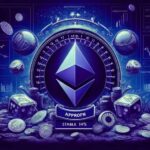Non-Fungible Tokens (NFTs) have captured widespread attention primarily in the art world, but their utility extends far beyond visual arts. NFTs represent unique digital assets that are stored on a blockchain, providing irrefutable proof of ownership and authenticity. Beyond art, industries are increasingly exploring the potential of NFTs to revolutionize various sectors. From gaming to real estate, NFTs offer a new paradigm for ownership and exchange in the digital realm. The underlying technology of NFTs enables the creation, ownership, and transfer of digital assets with unprecedented security and transparency, opening up a world of possibilities for innovation and disruption.
The versatility of NFTs is perhaps most prominently seen in the gaming industry. In-game assets such as characters, skins, and virtual real estate can now be tokenized as NFTs, allowing players to truly own and trade their digital possessions. This model has spurred the development of blockchain-based games where players have full ownership of their in-game assets, creating new revenue streams for developers and players alike. With NFTs, gamers can buy, sell, and trade assets across different platforms, fostering a vibrant and decentralized gaming economy that transcends traditional boundaries.
Gaming and Virtual Assets
Gaming has emerged as one of the most promising frontiers for NFTs, offering a glimpse into the future of digital ownership. In addition to in-game assets, entire gaming universes and experiences are being tokenized as NFTs, allowing players to own and trade virtual worlds. This concept of “play-to-earn” enables players to monetize their time and skills by earning valuable NFTs through gameplay. Blockchain-based games are pioneering new economic models where players have a direct stake in the success of the game, blurring the lines between play and work.
The integration of NFTs in the music industry is another exciting development. Musicians can tokenize their music, albums, and concert tickets as NFTs, providing fans with unique digital collectibles and exclusive experiences. NFTs also offer a solution to the challenges of digital piracy and royalty distribution, ensuring that artists are fairly compensated for their work. This direct connection between artists and fans has the potential to revolutionize the music industry’s business model, empowering artists and creating new opportunities for fan engagement and monetization.
Music and Digital Collectibles
Beyond gaming, the music industry is experiencing a significant transformation through the integration of NFTs. Musicians can tokenize their music, albums, and concert tickets as NFTs, offering fans unique digital collectibles and exclusive experiences. This direct interaction between artists and fans fosters a deeper connection and provides artists with new revenue streams. Moreover, NFTs offer a solution to the longstanding issues of digital piracy and royalty distribution, ensuring that artists receive fair compensation for their work. With NFTs, musicians can directly monetize their creations and engage with their audience in innovative ways, ultimately reshaping the landscape of the music industry.
Real estate is also undergoing a digital revolution with the adoption of NFTs. Property ownership and transactions can be tokenized, allowing for faster, more transparent, and cost-effective real estate transactions. NFTs representing real estate assets provide buyers with verifiable proof of ownership and streamline the transfer process, reducing the need for intermediaries like lawyers and title companies. Additionally, fractional ownership of real estate through NFTs opens up investment opportunities to a wider range of individuals, enabling them to diversify their portfolios and access previously inaccessible markets.
Real Estate and Property Ownership
In the realm of intellectual property, NFTs offer a solution to issues related to digital piracy and ownership rights. Content creators can tokenize their work, including images, videos, and written content, creating unique digital assets that can be bought, sold, and traded. Each NFT represents ownership of a specific digital asset, making it easier to track and enforce copyright and licensing agreements. Smart contracts embedded within NFTs can automate royalty payments to content creators whenever their work is used or resold, ensuring fair compensation and incentivizing creativity.
Fashion and luxury brands are also exploring the potential of NFTs to authenticate and track the provenance of high-end items. Luxury brands can create NFTs representing limited edition products or exclusive experiences, allowing customers to verify the authenticity and ownership of their purchases. Additionally, NFTs enable brands to engage with their customers through gamification and loyalty programs, rewarding them with unique digital collectibles or access to exclusive events. By leveraging NFTs, fashion brands can enhance brand loyalty, combat counterfeiting, and create new revenue streams.
Education and Credentialing
NFTs are poised to disrupt the field of education and credentialing by providing a secure and tamper-proof way to verify academic achievements and professional certifications. Educational institutions and training providers can issue NFTs representing diplomas, degrees, and certifications, which are stored on a blockchain and accessible to employers and institutions worldwide. This digitization of credentials eliminates the need for paper-based certificates, reduces the risk of fraud, and ensures that individuals’ achievements are accurately recorded and recognized. NFTs also allow for the creation of verifiable digital badges and micro-credentials, enabling individuals to showcase their skills and expertise in specific areas.
The healthcare industry is also exploring the potential of NFTs to improve patient care and medical records management. Medical records and diagnostic images can be tokenized as NFTs, providing patients with secure access to their health information and enabling interoperability between different healthcare providers. NFTs can also be used to verify the authenticity of pharmaceutical products and track their supply chain, reducing the risk of counterfeit medications and ensuring patient safety. By leveraging NFTs, the healthcare industry can enhance data security, improve patient outcomes, and streamline administrative processes.
Environmental Impact and Sustainability
While NFTs offer numerous benefits, concerns have been raised about their environmental impact, particularly regarding energy consumption. Many NFTs are created and traded on blockchain networks that rely on energy-intensive consensus mechanisms like proof-of-work. The carbon footprint of NFTs has sparked debates about their sustainability and raised questions about the long-term viability of the technology. However, efforts are underway to address these concerns through the development of more energy-efficient blockchain solutions and the adoption of eco-friendly practices by NFT platforms and creators.
Conclusion
NFTs are reshaping industries and unlocking new possibilities across various sectors. From education and healthcare to environmental sustainability, NFTs offer innovative solutions to complex challenges. However, it’s essential to address concerns such as scalability, environmental impact, and regulatory compliance to ensure the responsible and sustainable growth of the NFT ecosystem. By collaborating and innovating, stakeholders can harness the full potential of NFTs to drive positive change and create a more inclusive, transparent, and equitable digital economy. As the technology continues to evolve, we can expect to see even more creative applications of NFTs, transforming industries and shaping the future of digital ownership and exchange.



